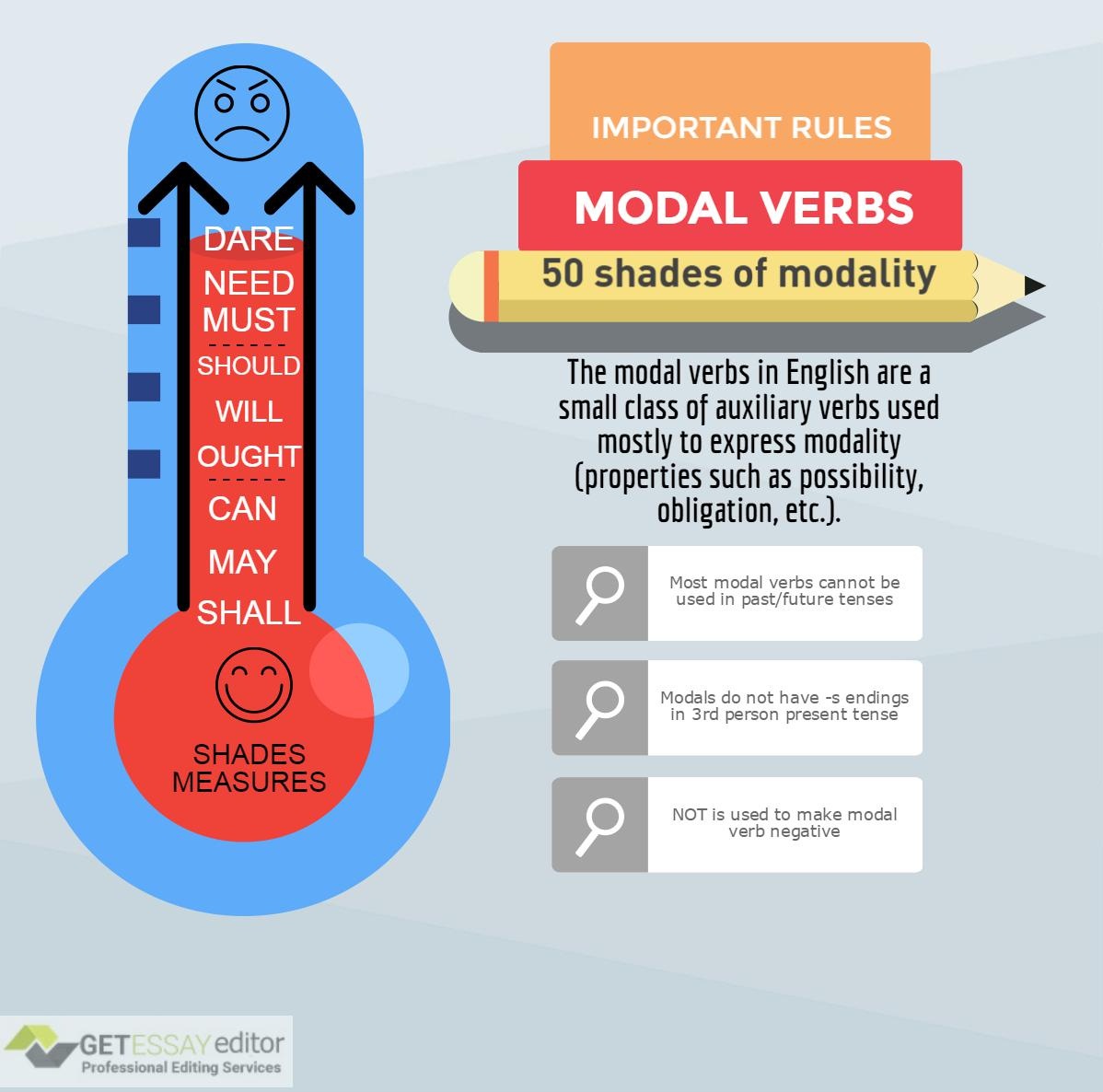Important rules about modal verbs in English
Wiki says: “The modal verbs of English are a small class of auxiliary verbs used mostly to express modality (properties such as possibility, obligation, etc.). They can be distinguished from other verbs by their defectiveness (they do not have participle or infinitive forms) and by the fact that they do not take the ending -(e)s in the third-person singular.”
We use modal verbs to express something that can probably, certainly, or possibly happen. Modal verbs help when speaking about ability, making requests and offers, asking permission, and more. The modal verbs in English differ from other verbs, because they are not used separately, and do not indicate a specific action or state, they just reflect its modality, the attitude of the speaker to the action.
For example:
I can play guitar.
What kind of relation is it? For example, the speaker can evaluate the action as possible, necessary, allowable, forbidden, something that is ordered, unlikely or very likely to happen, and so on.
For example:
I'm going to London.
I can go to London.
I must go to London.
May I go to London?
There are several modal verbs in English language:
- May / Might
- Have to / Have got to
- Can / Could
- Must
- Need
- Should
- Be to
- Will
- Ought to
- Would
- Used to
- Dare
- Shall
The most commonly used are three: Can, May and Must. These verbs have the most common meaning, and can sometimes substitute the other modals. Interrogative sentences with modal verbs are formed without an auxiliary verb to do, where a modal verb is put at the beginning of the sentence.
For example:
Shall I vote for you?
Could you give me his phone number?
The negative form of the modal verb is formed when NOT is added after it.
May not - Mayn’t
Must not - Mustn’t
Should not - Shouldn’t
Will not - Won’t
Shall not - Shan’t
Can not - Can’t
REMEMBER: We do not use particle to after modal verbs, except for ought to, have (got) to, and be to:
I can do it. I must go.

Was this article useful for you? Please, share your thoughts with us in Live Chat. Do not have time to learn grammar rules? Contact us! Our professional Editors will help you to improve your paper and knowledge.
